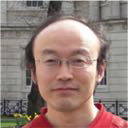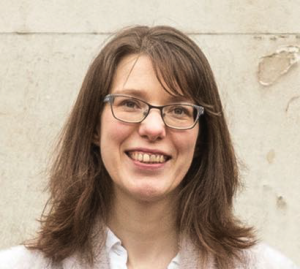University College London (UCL) London’s Global University was established in 1826, is among the top universities in the UK and ranked in 7th place worldwide in the QS World University Rankings 2015/16. It was also the first UK university to welcome female students on equal terms with men. Academic excellence and conducting research that addresses real-world problems inform its ethos to this day. UCL academics are working at the forefront of their disciplines, collaborating with world-renowned organisations such as Intel, BHP Billiton and NASA and contributing to influential reports for the UN, EU and UK government. UCL’s academic structure consists of 10 faculties, each home to world-class research, teaching and learning in a variety of fields. UCL has 920 professors, more than 5,000 academic and research staff, and a nearly 29,000-strong student community.
The Centre for Computational Science (CCS) at UCL, led by Prof Peter Coveney, is an internationally leading centre for innovative scientific research using high performance computing. CCS is currently comprised of some 20 members and pursues a diverse range of research unified by common computational approaches, from theory and design of algorithms to implementations and middleware on internationally distributed HPC systems. The CCS enjoys numerous successful industrial collaborations with companies such as Unilever, Schlumberger, Microsoft, Pfizer and Fujitsu. The CCS has developed several HPC applications, including the computational fluid dynamics code, HemeLB, for clinical applications in vascular disorders such as intracranial aneurysms. The UCL team also maintains other software, tools and services, including a second HPC code, LB3D, which supports a number of other biomedical studies, along with the Binding Affinity Calculator (BAC), and the Application Hosting Environment (AHE).
The Department of Structural and Molecular Biology is an integral part of the Institute of Structural and Molecular Biology (ISMB), an institute conducting world-class research in the field of protein science. The ISMB is a joint institute between UCL and Birkbeck, primarily constituted of the UCL Department of Structural and Molecular Biology and the Birkbeck College Department of Biological Sciences, but also including the Chemical Biology section of the UCL Department of Chemistry. The department investigates areas of modern biology, biotechnology and medicine at the atomic, molecular, cellular and organism levels.
The National Hospital for Neurology and Neurosurgery (NHNN) is the UK’s largest dedicated neurological and neurosurgical hospital. It provides comprehensive services for the diagnosis, treatment and care of all conditions that affect the brain, spinal cord, peripheral nervous system and muscles. Services include specialist neurosurgery, a brain tumour unit, the Hyper-acute Stroke Unit (HASU), an acute brain injury unit, the National Prion Clinic, a pioneering neuro-rehabilitation unit, the UK’s first interventional MRI scanner, the largest specialised neurosurgical ITU and the only neuromedical ITU in the country. Together with its neighbour, the Institute of Neurology, it is a major international centre for research and training. The Hospital is part of University College London Hospitals NHS Foundation Trust (UCLH).
The Gupta lab, led by Dr Ravindra Gupta, is based in the Division of Infection & Immunity within the Faculty of Medicine at UCL. Their work focuses on four areas; investigating the details of macrophage infection in clinical isolates, exploring viral determinants of successful transmission by examining HIV genes individually from both acute and chronic infection, studying in vitro HIV drug resistance to protease inhibitors and implications for global scale up of antiretroviral therapy, and exploring the minimum host requirements of high level HIV control.
UCL leads the overall project and will take a substantial role in WP1: Management, particularly in coordination of the consortium; WP2: Biomedical Research Activities, particularly in leading the molecularly-based medicine exemplar research; and WP6: Workflows and Performance, including the deployment of an informatics platform to store data from the project as well as other software tools such as HemeLB, BAC and AHE.
Key Personnel

Professor Peter V. Coveney – holds a chair in Physical Chemistry, is an Honorary Professor in Computer Science at University College London (UCL) and is Professor Adjunct at Yale University School of Medicine (USA). He is Director of the Centre for Computational Science (CCS) at UCL. Coveney is active in a broad area of interdisciplinary research including condensed matter physics and chemistry, materials science, as well as life and medical sciences in all of which high performance computing plays a major role. He has led many large scale projects, including the EPSRC RealityGrid e-Science Pilot Project (2001-05) and its extension as a Platform Grant (2005-09); he is also PI on several current grants from EPSRC and other agencies, including the role of Coordinator of the current H2020 CompBioMed Centre of Excellence (2016-19) and the newly funded H2020 VECMA FET-HPC project (2018- 2021). He has been the recipient of many US NSF and DoE as well as European supercomputing awards (from DEISA and PRACE), which provide access to several petascale computers. Coveney chaired the UK Collaborative Computational Projects Steering Panel (2006-16) and has served on programme committees of many conferences, including the 2002 Nobel Symposium on Self-Organisation; he was Chair of the UK e-Science All Hands Meeting 2008, and of the Discrete Simulation of Fluid Dynamics conference 2003. He has won prizes from Supercomputing (2003 & 2007), International Supercomputing Conference (2004 & 2008) and American Association for Artificial Intelligence. He has published more than 415 scientific papers and co-authored two best-selling books (The Arrow of Time and Frontiers of Complexity, both with Roger Highfield) and is lead author of the first textbook on Computational Biomedicine (Oxford University Press, 2014). Coveney is a founding member of the UK Government’s E-Infrastructure Leadership Council and a Medical Academy Nominated Expert to the UK Prime Minister’s Council for Science and Technology on Data, Algorithms and Modelling which led to the creation of the London based Alan Turing Institute.
 Professor Andre Townsend-Nicholson – holds a chair in Biochemistry & Molecular Biology in the Division of Biosciences (Structural & Molecular Biology). She obtained her doctorate in Cellular and Molecular Biology from the Université Louis Pasteur (Strasbourg, France) in 1990. From 1991 to 1996, she left transcriptional studies to pursue cell signalling, studying mammalian G protein-coupled receptors as a postdoctoral fellow in the Neurobiology Division of the Garvan Institute of Medical Research (Sydney, Australia). Having started her research career at the University of Toronto in Canada, she was appointed in 2001 as a member of academic staff at UCL in the Department of Biochemistry & Molecular Biology, following three and a half years of postdoctoral study in UCL’s Department of Anatomy & Developmental Biology and eighteen months as a British Heart Foundation Research Fellow in the Department of Physiology. Andrea has especial interest in facilitating the introduction of personalised medicine into clinical practice. Her research is strongly focused on enhancing our understanding of the molecular basis of health and disease, primarily by elucidating the role of cell surface receptors in these processes using molecular biology, biochemistry, cell biology, cellular imaging, cell signalling, molecular pharmacology and computational biology. She is also pursuing the development of new technologies, such as bioelectrosprays, to generate new tissues and biological structures from individual cells for therapeutic benefit.
Professor Andre Townsend-Nicholson – holds a chair in Biochemistry & Molecular Biology in the Division of Biosciences (Structural & Molecular Biology). She obtained her doctorate in Cellular and Molecular Biology from the Université Louis Pasteur (Strasbourg, France) in 1990. From 1991 to 1996, she left transcriptional studies to pursue cell signalling, studying mammalian G protein-coupled receptors as a postdoctoral fellow in the Neurobiology Division of the Garvan Institute of Medical Research (Sydney, Australia). Having started her research career at the University of Toronto in Canada, she was appointed in 2001 as a member of academic staff at UCL in the Department of Biochemistry & Molecular Biology, following three and a half years of postdoctoral study in UCL’s Department of Anatomy & Developmental Biology and eighteen months as a British Heart Foundation Research Fellow in the Department of Physiology. Andrea has especial interest in facilitating the introduction of personalised medicine into clinical practice. Her research is strongly focused on enhancing our understanding of the molecular basis of health and disease, primarily by elucidating the role of cell surface receptors in these processes using molecular biology, biochemistry, cell biology, cellular imaging, cell signalling, molecular pharmacology and computational biology. She is also pursuing the development of new technologies, such as bioelectrosprays, to generate new tissues and biological structures from individual cells for therapeutic benefit.
 Dr Fergus Robertson – consultant in interventional and diagnostic neuroradiology at the National Hospital for Neurology and Neurosurgery and at Great Ormond Street Hospital for Children. Fergus studied medicine at Queens’ College, Cambridge University and at the Royal London Hospital before training in general medicine and cardiology in East London and then in general radiology at the Royal Free Hospital in North London. He then completed subspeciality training in neuroradiology on the Pan-London Neuroradiology Fellowship, including a 2-year training as interventional neuroradiology fellow at Queen Square and Great Ormond Street Hospitals. He was appointed to his current post in 2006. He is the clinical lead for adult and paediatric interventional neuroradiology and for spinal imaging. His key clinical interests include the endovascular treatment of acute stroke, cerebral aneurysms, cerebral venous stenosis, arteriovenous shunts and other vascular problems of the brain and spine in adults and children. He is passionate about minimising clinical risk and maximising patient safety by exploiting state of the art computing resources and through an active clinical governance programme.
Dr Fergus Robertson – consultant in interventional and diagnostic neuroradiology at the National Hospital for Neurology and Neurosurgery and at Great Ormond Street Hospital for Children. Fergus studied medicine at Queens’ College, Cambridge University and at the Royal London Hospital before training in general medicine and cardiology in East London and then in general radiology at the Royal Free Hospital in North London. He then completed subspeciality training in neuroradiology on the Pan-London Neuroradiology Fellowship, including a 2-year training as interventional neuroradiology fellow at Queen Square and Great Ormond Street Hospitals. He was appointed to his current post in 2006. He is the clinical lead for adult and paediatric interventional neuroradiology and for spinal imaging. His key clinical interests include the endovascular treatment of acute stroke, cerebral aneurysms, cerebral venous stenosis, arteriovenous shunts and other vascular problems of the brain and spine in adults and children. He is passionate about minimising clinical risk and maximising patient safety by exploiting state of the art computing resources and through an active clinical governance programme.
 Dr Ravindra Gupta – a Wellcome Trust Intermediate Clinical Fellow for the Division of Infection & Immunity at UCL. He teaches HIV virology on UCL MSc courses. His group is exploring HIV tropism for certain cell types, including T cell subsets and macrophages. Through use of clinically derived viruses he aims to better understand transmission and establishment of viral latent reservoirs. The potential benefits include informing vaccine design as well as curative strategies. His group also studies HIV drug resistance both on a population level through collaborations with WHO, with an element of basic research into protease inhibitor resistance. The aim is to better inform antiretroviral drug strategies and patient specific drug selection.
Dr Ravindra Gupta – a Wellcome Trust Intermediate Clinical Fellow for the Division of Infection & Immunity at UCL. He teaches HIV virology on UCL MSc courses. His group is exploring HIV tropism for certain cell types, including T cell subsets and macrophages. Through use of clinically derived viruses he aims to better understand transmission and establishment of viral latent reservoirs. The potential benefits include informing vaccine design as well as curative strategies. His group also studies HIV drug resistance both on a population level through collaborations with WHO, with an element of basic research into protease inhibitor resistance. The aim is to better inform antiretroviral drug strategies and patient specific drug selection.
 Dr Shunzhou Wan – a post doctoral scientist in the Centre for Computational Science at UCL. He holds MSc and PhD degrees from University of Science and Technology of China. Before joining Professor Coveney’s group, he held a post-doctoral position with the Nobel laureate Prof Martin Karplus. His research focuses on the use of molecular modelling techniques and free energy calculations to understand the structure, energetics and function of proteins. He has extensive experience in the deployment of simulations on HPC resources. His current work concentrates on key proteins in the cancer domain: he has studied the activation and inhibition of the epidermal growth factor receptor (EGFR) and fibroblast growth factor receptor (FGFR), both of which are key drivers in the pathogenesis of diverse tumour types.
Dr Shunzhou Wan – a post doctoral scientist in the Centre for Computational Science at UCL. He holds MSc and PhD degrees from University of Science and Technology of China. Before joining Professor Coveney’s group, he held a post-doctoral position with the Nobel laureate Prof Martin Karplus. His research focuses on the use of molecular modelling techniques and free energy calculations to understand the structure, energetics and function of proteins. He has extensive experience in the deployment of simulations on HPC resources. His current work concentrates on key proteins in the cancer domain: he has studied the activation and inhibition of the epidermal growth factor receptor (EGFR) and fibroblast growth factor receptor (FGFR), both of which are key drivers in the pathogenesis of diverse tumour types.
 Ilaria Marsili – Head of Project Management at the UCL European Research and Innovation Office. Ilaria is responsible for running the post-award European Project Management service, providing financial, contractual and project management services to UCL-led projects funded under FP7 and Horizon 2020. Ilaria is also the designated Project Manager of two Specific Targeted Research Projects (STREP) funded by the Seventh Framework Programme, one Marie Curie Action (MSCA-ITN), one Research and Innovation Action (RIA) and one Coordination and Support Action funded by Horizon 2020.
Ilaria Marsili – Head of Project Management at the UCL European Research and Innovation Office. Ilaria is responsible for running the post-award European Project Management service, providing financial, contractual and project management services to UCL-led projects funded under FP7 and Horizon 2020. Ilaria is also the designated Project Manager of two Specific Targeted Research Projects (STREP) funded by the Seventh Framework Programme, one Marie Curie Action (MSCA-ITN), one Research and Innovation Action (RIA) and one Coordination and Support Action funded by Horizon 2020.
 Dr Emily Lumley – Project Manager and Scientific Administrator at The Centre for Computational Science (CCS) at UCL. She holds a Masters degree in Chemistry (University of Hull, 2008) and a PhD in Chemistry (University of Hull, 2012). Her research background is in Organic Chemistry specialising in singlet oxygen chemistry and with additional knowledge of peptide synthesis and cancer therapy. She was Project Manager for a Marie Skłodowska-Curie Actions Innovative Training Network in the production and use of singlet oxygen. She is now working as Project Manager of the CompBioMed project within the CCS at UCL, monitoring the progress of the project, and assisting in the organisation of many outreach activities.
Dr Emily Lumley – Project Manager and Scientific Administrator at The Centre for Computational Science (CCS) at UCL. She holds a Masters degree in Chemistry (University of Hull, 2008) and a PhD in Chemistry (University of Hull, 2012). Her research background is in Organic Chemistry specialising in singlet oxygen chemistry and with additional knowledge of peptide synthesis and cancer therapy. She was Project Manager for a Marie Skłodowska-Curie Actions Innovative Training Network in the production and use of singlet oxygen. She is now working as Project Manager of the CompBioMed project within the CCS at UCL, monitoring the progress of the project, and assisting in the organisation of many outreach activities.
